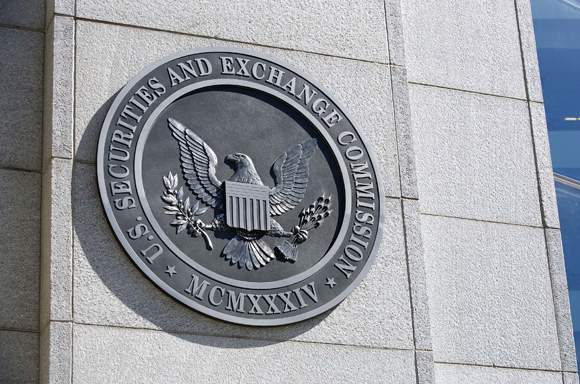SEC vote requires hedgies, PE firms to register with commission; exemption granted for family offices
The U.S. Securities and Exchange Commission will require private-fund advisers to register with the agency, opening hedge funds and private-equity funds to unprecedented scrutiny.
SEC commissioners voted 3-2 today to approve a Dodd-Frank Act measure calling for about 750 advisers to disclose “census- like data” about their investors and employees, the assets they manage, potential conflicts of interest and their activities outside of fund advising. The advisers must register by March 30, and all of the information they disclose will be public.
“Many of these private fund advisers will now not only register with the commission, but be subject to its rules, its regulatory oversight and its examination program,” SEC Chairman Mary Schapiro said before the vote in Washington. “Today's rules will fill a key gap in the regulatory landscape.”
The registration system exempts as many as 2,000 venture capital fund advisers, foreign advisers without a U.S. business and advisers with less than $150 million in assets under management. Those exempted are still obliged to file a portion of the information required of the registered advisers.
In a separate rule, the SEC also voted to approve a regulatory exemption for family offices established by wealthy investors to manage their personal portfolios and do estate planning. To get the exemption, the offices must advise only family clients and be controlled exclusively by family members, not presenting themselves publicly as investment advisers.
‘Greater Clarity'
Private-fund registration was included in the Dodd-Frank Act after hedge funds pushed for the requirement, which was seen as less burdensome than the regulations being imposed on banks. In lobbying Congress, representatives of the private pools of capital argued that they shouldn't be heavily regulated because they didn't cause the financial crisis.
“We are optimistic that the Commission's actions today will provide greater clarity and sufficient time for our members as they work to fully comply with these rules,” said Richard Baker, president and chief executive officer of Washington-based lobbying group Managed Funds Association, in a statement.
Many of the largest hedge-fund firms are already SEC- registered, including Paulson & Co. Inc., Renaissance Technologies LLC, Bridgewater Associates LP and AQR Capital Management LLC.
Commissioner Kathleen Casey, who joined fellow Republican Troy Paredes in opposing the registration rule, said it will harm innovation and capital formation while giving “no meaningful relief” to advisers who qualify for an exemption.
“Adoption of the current reporting requirements is only the first step of what surely will be an ongoing process of emptying the distinction between an exempt reporting adviser and a registered adviser of all meaning,” Casey said.
Schapiro said the SEC may re-think the information it seeks after taking a look at the first year's results. Exempt advisers won't be subject to the routine exams registered advisers now face, she said.
Venture Capital
The new definition of venture capital advisers applies to funds that invest mostly in private companies, with minimal leverage, no redemption rights for investors and no more than 20 percent of capital in non-qualifying investments. Funds that started raising money before this year automatically qualify.
At the same time fund advisers are added to the SEC's watch, about 3,200 investment advisers managing $25 million to $100 million will be moved from federal oversight to state-based regulation by June 28, 2012. States will have the option to regulate advisers, leaving the SEC with oversight in those that decline -- as New York, Minnesota and Wyoming already have done.
The House Financial Services Committee approved legislation today that would undo the SEC registration requirement as it applies to private-equity funds.
The House measure would eliminate “burdensome and costly government mandates” and the funds continue to invest in small businesses and create jobs, Representative Robert Hurt, the Virginia Republican who sponsored the measure, said in a statement dated June 20.
--Bloomberg News--







